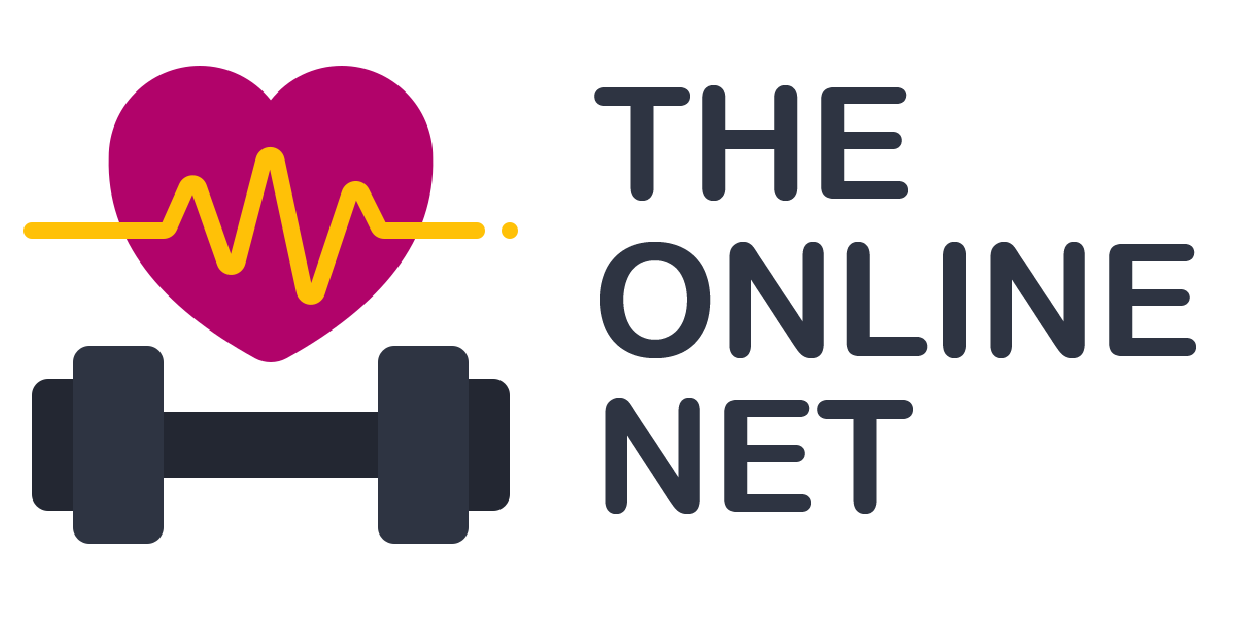Nutritional Supplement Uses: Are They Really Helpful?
English TL;DR:
- Nutritional supplements address nutrient gaps, support immune and gut health, and maintain bones, skin, and energy.
- They help address deficiencies like iron, vitamin D, and calcium, which are crucial for anemia prevention, bone health, and energy.
- Athletes use supplements like protein, amino acids, and creatine to enhance performance and recovery.
- Calcium and vitamin D support bone health and immune function but excess can cause harm.
- High supplement doses can lead to adverse effects and drug interactions; consult a healthcare provider.
- Protein supplements should complement food, not replace it; timing and type matter for fitness goals.
- Multivitamins fill nutritional gaps but must accompany a balanced diet for optimal health benefits.
Are nutritional supplements really helpful? Many people use them, but how do they work? This blog post explores the uses and benefits of nutritional supplements, delving into how they support health and help with deficiencies. I'll guide you through understanding the benefits and risks of these supplements and how to choose the right ones for your needs. Let's find out if supplements are truly a key to better health and fitness!
What Are the Primary Uses of Nutritional Supplements?

Nutritional supplements have become a common part of many people's health routines. They come in forms like pills, gummies, and powders. You might wonder, why do so many people take them?
How do nutritional supplements support overall health?
Do supplements really help with overall health? Precision: Yes, they can fill nutrient gaps. Many people miss important nutrients in their daily diet. Supplements like multivitamins, fish oil, and probiotics can add what you lack. They can support your immune system and improve your gut health. Nutrients in supplements can also work to maintain your bones, skin, and energy levels.
What deficiencies can supplements help to address?
Can supplements help with specific deficiencies? Precision: Yes, they target specific nutrient shortages. Some people do not get enough iron, vitamin D, or calcium from food. Iron supplements can help prevent anemia. Calcium and vitamin D are crucial for bone health. Vitamin B12 supports energy and blood health, especially for vegans. Deficiencies in these nutrients might result in fatigue, bone pain, or muscle weakness.
How do supplements enhance athletic and fitness performance?
Do athletes need supplements? Precision: Yes, they can boost training results. Athletes and fitness lovers often want to improve their performance. Protein powders help build muscle and aid in recovery after exercise. Amino acids may decrease exercise fatigue. Creatine can help with strength and high-intensity training. Each supplement may target specific fitness goals or needs.
Supplements can be helpful in certain situations. Many people use them to boost health and address nutrient gaps in their diet. However, not all supplements are suitable for everyone. It's important to make informed decisions and consider your personal health needs. If interested, you can always check helpful resources about nutritional supplements.
What Are the Benefits and Risks of Using Nutritional Supplements?
What are the proven benefits of common supplements like calcium and vitamin D?
Calcium is good for bones. Vitamin D helps with calcium absorption. This dynamic duo prevents bone loss and fractures. Calcium's role in bone strength makes it valuable for kids and seniors. For seniors, it reduces osteoporosis risk by maintaining bone mass. For kids, it is critical in growing sturdy bones.
Vitamin D, apart from helping calcium, boosts the immune system. It might reduce flu risks and improve mood. Sunshine is a natural source, yet supplements help those with less sun exposure. Therefore, individuals in cold climates, who see little sun, benefit highly from these supplements. Both calcium and vitamin D work to support long-term bone and immune health. These nutrients hold significant value, but with them, balance is important.
What are the potential risks and adverse effects associated with supplement use?
Supplements should be consumed with care. High doses can hurt the body instead. For example, too much vitamin D can cause calcium buildup in the blood, leading to issues like nausea, weakness, and even kidney damage. This showcases how a seemingly beneficial supplement, in large amounts, turns harmful.
An excess of calcium may also bring complications. It can lead to kidney stones and may interfere with how other minerals function. Users must consider these adverse effects before taking supplements.
Another common risk is stomach upset. High doses of supplements like iron can cause pain and constipation. This discomfort emphasizes the importance of taking the correct dosage. Supplements may also affect mental health, causing mood changes or irritability. Each supplement has its specific issues, and users should learn about them beforehand.
How can drug interactions affect the safety of supplement use?
Combining supplements with medications can lead to major health issues. St. John's wort, a popular herbal supplement, is known to decrease the effects of many medications. It makes birth control less effective and complicates antidepressant use, leading to side effects like nausea or confusion.
Additionally, vitamin K can interfere with blood thinners like Warfarin. It can make the drug work less efficiently, leading to blood clotting risks. Antioxidant supplements, like vitamin E, might reduce the effectiveness of chemotherapy drugs, hindering cancer treatment.
It is crucial to discuss any supplements with a healthcare provider, especially if you are on medication. Clear communication helps avoid dangerous interactions. Doing so ensures both the medication and supplement function correctly, maintaining health and safety.
Considering these risks and benefits, informed choices must guide supplement use. Regular consultation with a doctor and following recommended dosages can prevent potential issues. This mindful approach ensures that supplements serve their purpose: supporting health, not harming it.
For more comprehensive information and guidelines, you may refer to resources such as Dietary Guidelines for a balanced perspective.
How Should Protein Supplements Be Used for Maximum Benefit?

I've often been asked, "When is the best time to take protein supplements?" The answer is that it varies for different people depending on their goals. The precision answer is right after a workout, just like the SQuAD method might suggest. This time is best for muscle recovery and growth. After a workout, your muscles crave nutrients. Giving them protein helps in muscle repair. But, if your goal is to prevent muscle loss while you sleep, then taking protein before bed might be best.
Now, what types of protein supplements are out there? The two you hear about most are whey and casein. Whey protein is digested quickly. This makes it ideal for post-workout recovery. It rushes amino acids to your muscles. Whey comes in concentrate, isolate, or hydrolysate forms. Each one has a slightly different protein content. Casein, on the other hand, digests slowly. It provides a steady release of protein to your muscles. This is why it’s recommended before bedtime.
Beneath these popular types, there are other options like soy, pea, or hemp protein. These are best for those who prefer plant-based choices. Some of these options provide additional benefits. For example, soy protein has antioxidants that help heart health. Regardless of type, each protein supplement offers unique benefits. You need to choose based on your dietary preferences and fitness goals.
Another common question is, "Can protein supplements replace dietary protein from food?" Simply put, no, they shouldn't. Whole foods contain more than just protein. They have essential nutrients like vitamins, minerals, and fibers. These are important for overall health. Protein shakes can fill gaps if you’re not getting enough protein but shouldn’t be your major source. Supplements can complement your diet, not replace real food.
When I work with clients, I always emphasize combining supplements with a balanced diet. Why is this important? Let’s say you only consume protein shakes. You'd miss out on nutrients like omega-3s from fish or fiber from grains. Having a variety of foods ensures you meet all your nutritional needs. Supplements are a tool: use them wisely to boost your intake.
There's another point to consider: the quality of your protein. Not all brands are created equal. I suggest checking labels for protein content and additives. Some may have unwanted sugar or fillers. This step is crucial to ensure you’re getting a pure product. Look for certifications to ensure safety and efficacy.
To wrap this up, use protein supplements as an addition to a healthy diet. They provide a convenient source of protein but should not replace whole foods. Know your goals, choose the right time, and pick the best type for you. Always prioritize real foods for the best health outcomes. Consult with a health expert for personalized advice. And remember, balance in diet is key to maximizing your potential.
What Should You Consider When Incorporating Supplements into Your Diet?

When thinking about adding supplements to your diet, ask yourself a few questions to guide your choices. How can you choose the right dietary supplements based on your needs? The answer lies in understanding your daily diet and health goals. Individuals differ, and so do their nutrient needs. For athletes, for example, supplements can enhance recovery and performance. Multivitamins could be a good start because they cover broad deficiencies, though they contain low nutrient doses. Look at what you eat, your activity level, and health concerns.
Physical activity can demand more from your body. Supplements for athletes often include protein powders, electrolytes, and amino acids. These help in muscle repair and energy replacement. To decide what’s best, consider discussing needs with a nutritionist or dietician. They can help map out which supplements fill gaps in your diet.
Next, think about guidelines for safe and effective supplement consumption. Not all supplements are safe for everyone; some might cause harm if taken irresponsibly. Always read the label and follow the recommended doses. Take calcium, for instance. It supports bone strength, but too much could cause kidney stones. Some nutrients like vitamins A, D, E, and K can build up and cause problems if consumed in excess. Examine each supplement's timing; some need an empty stomach, others you take with food for better absorption.
Combining supplements could be risky without proper knowledge. For instance, adding iron and calcium together might not work well since calcium can block the absorption of iron. Consider using government resources like MyPlate to better understand the balance of nutrients. Supplements should complement food, not replace it.
Why is it important to consult healthcare providers before taking supplements? Because they can evaluate your individual health needs and possible interactions with medications you might be taking. Your doctor can offer insight into your overall health picture and how supplements fit within it. Supplements can interact negatively with prescription or over-the-counter drugs. For example, St. John's Wort can counteract the benefits of some prescriptions.
Moreover, healthcare providers often have access to your comprehensive medical records, helping you avoid misunderstandings or potential hazards. Once, I remember a patient who began taking a new supplement without consulting his doctor. He ended up facing unexpected side effects that could have been prevented with guidance.
In sum, tailoring a supplement plan involves assessing personal health needs and lifestyle. Another crucial step is always involving a healthcare professional to ensure safety. Dunn out thoroughly and use reputable sources to guide choices in building an effective plan. Stay informed and thoughtful about these decisions and they can better fulfill the roles they are meant for in your health journey.
How Do Multivitamins and Mineral Supplements Contribute to Health?

Multivitamins and mineral supplements are popular. They aim to help fill gaps in our diets. I have learned that not everyone eats the right mix of foods daily. So, these supplements step in as helpers. They provide essential vitamins and minerals that some people might miss.
What are the key benefits of taking daily multivitamins?
Daily multivitamins offer a simple way to ensure you get key nutrients. If you ask, “What exactly do they do?” A precise answer is: They help boost overall health and prevent deficiencies. For example, Vitamin C promotes a strong immune system and supports skin health. Vitamin D helps bones absorb calcium. Some days, I don't eat very well. That’s why many love multivitamins. They are like a safety net.
Are there specific health conditions that benefit from mineral supplements?
Yes, some mineral supplements can target particular health needs. People often wonder, “What specific problems can minerals address?” The short answer is: Minerals like iron, calcium, and magnesium are vital for specific health conditions. Iron helps with anemia by improving red blood cell count. Calcium is crucial for bone health and can prevent osteoporosis. Magnesium helps regulate blood pressure and may reduce migraines. I find it fascinating how these tiny compounds play such big roles in our bodies.
How do multivitamins fit into a balanced diet?
Finding a balance is key. Multivitamins should not replace a healthy diet. Instead, they work best as part of one. Many ask, “How can I fit multivitamins into what I eat?” Here's the answer: Combine them with a diet filled with fruits, vegetables, and whole grains. Multivitamins fill in the gaps, but whole foods are vital for fiber, antioxidants, and phytonutrients. Whole foods provide more than just vitamins and minerals; they have fiber and other nutrients essential for health. I learned this after realizing my plate needed more variety and used resources like the FDA dietary supplement guidelines to guide me.
In conclusion, using multivitamins and mineral supplements wisely can boost health. They work best alongside a varied and balanced diet. It's important to understand your personal needs and possibly consult a healthcare provider. That way, you make sure you’re getting the most out of these tiny powerhouses. Remember, they supplement but do not substitute real food.
Conclusion
Nutritional supplements can fill nutrient gaps, boost performance, and support health. While they offer benefits like bone strength and enhanced fitness, they can also pose risks if not used mindfully. Protein supplements, for instance, should complement our diets, not replace whole foods. Always consider your personal needs and consult health professionals before starting any supplement. Understanding both the benefits and dangers helps you make informed choices. Embrace balanced nutrition with supplements as a supportive tool, keeping your health goals and safety front and center. Your well-being deserves careful thought and smart decisions.







